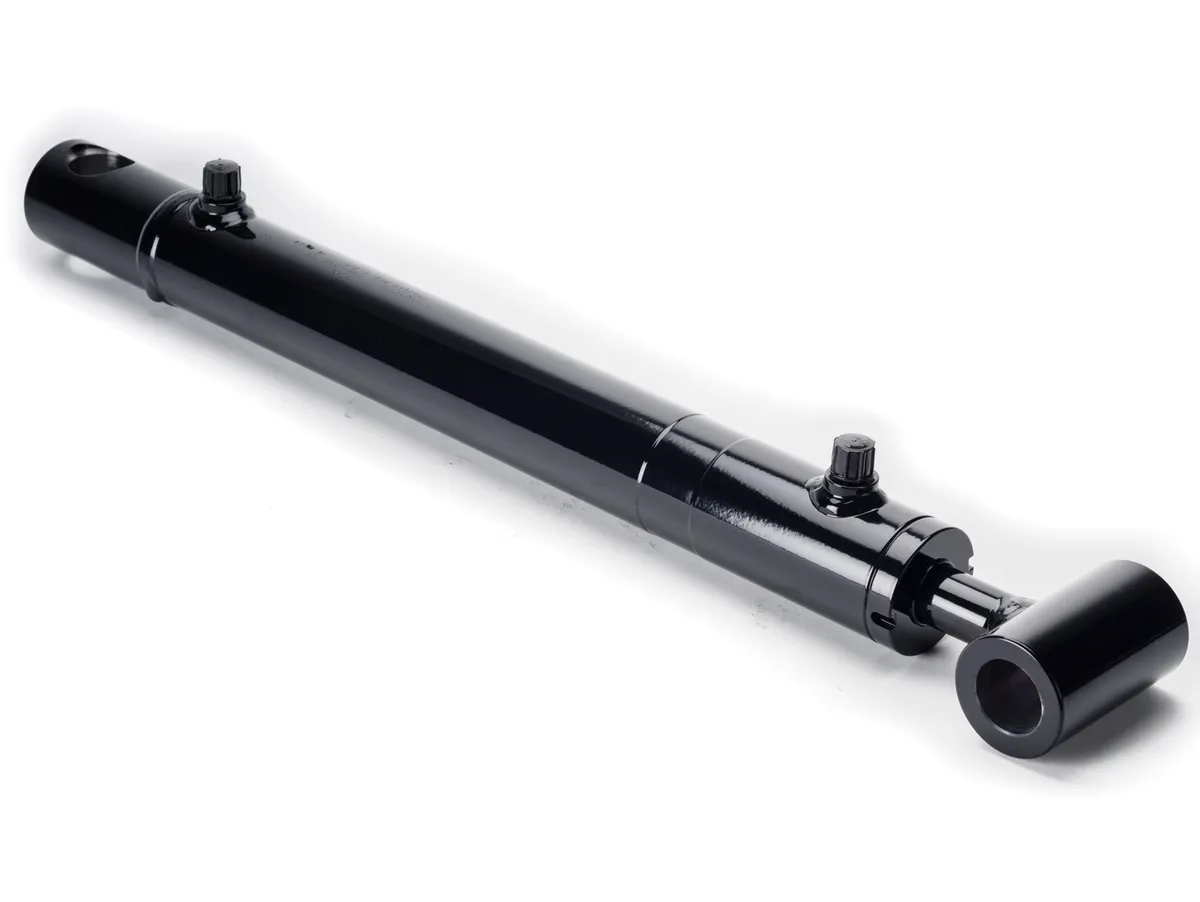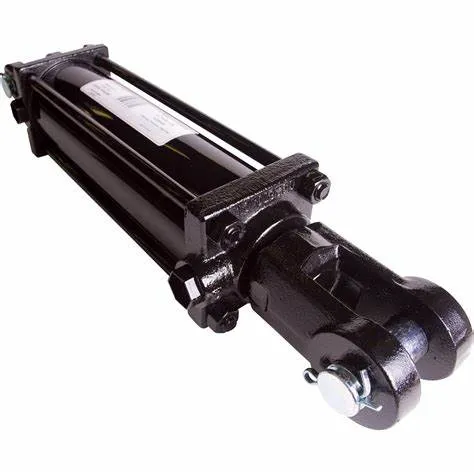The Ins and Outs of Industrial Hydraulic Cylinder Manufacturing Processes
Understanding Hydraulic Cylinders in the Industrial Environment
In the realm of industrial machinery, hydraulic cylinders play a crucial role in powering a wide range of applications. These mechanical actuators convert fluid power into linear motion, providing the force and precision needed for various tasks. Hydraulic cylinders consist of several key components, including the cylinder barrel, piston, piston rod, seals, and end caps.
Key Components and Structure
- Cylinder Barrel: The main body of the hydraulic cylinder where the piston moves back and forth.
- Piston: The component that separates the fluid on each side of the cylinder, creating pressure differentials for movement.
- Piston Rod: Connects the piston to the machine element being moved.
- Seals: Prevent leakage of hydraulic fluid and maintain pressure within the cylinder.
- End Caps: Close off the ends of the cylinder and house the fittings for fluid input and output.
The Basic Principle of Control Cylinder Operation
Hydraulic cylinders operate based on the principle of Pascal’s law, which states that when pressure is applied to a confined fluid, it transmits that pressure uniformly in all directions. This principle allows hydraulic cylinders to generate linear force and motion by pressurizing hydraulic fluid within the cylinder.
Principle Overview
By controlling the flow of hydraulic fluid into and out of the cylinder, the position and speed of the piston can be precisely regulated, enabling smooth and efficient operation in industrial settings.
Types of Hydraulic Cylinders in Industrial Applications
There are several types of hydraulic cylinders commonly used in industrial applications, each with its own unique characteristics and advantages.
Single Acting Cylinder
Single acting cylinders use hydraulic pressure to extend the piston, with an external force (spring or gravity) retracting it. These cylinders are ideal for applications where force is required in one direction only, such as lifting platforms.
Double Acting Cylinder
Double acting cylinders use hydraulic pressure to extend and retract the piston, providing force in both directions. These cylinders are versatile and widely used in various industrial machines.
Telescopic Cylinder
Telescopic cylinders feature multiple nested stages that extend and retract, providing a long stroke length in a compact design. These cylinders are commonly used in dump trucks and cranes.
Differential Cylinder
Differential cylinders have two pistons of different diameters, allowing for different speeds and forces in each direction. These cylinders are suitable for applications requiring variable force output.
Top Five Advantages of Industrial Hydraulic Cylinders
- High Power Density: Hydraulic cylinders can deliver high force in a compact package.
- Precision Control: Hydraulic systems offer precise control over speed and position.
- Reliability: Hydraulic cylinders are robust and durable, providing long-lasting performance.
- Adaptability: Hydraulic systems can be easily integrated into various industrial applications.
- Efficiency: Hydraulic cylinders can operate at high speeds with minimal energy consumption.
Industries Utilizing Industrial Hydraulic Cylinders
Industrial hydraulic cylinders find widespread use in various industries due to their reliability and versatility.
Manufacturing Industry
In manufacturing, hydraulic cylinders are used in machinery such as presses, injection molding machines, and assembly lines to provide precise force and motion control.
Construction Sector
Hydraulic cylinders power heavy equipment like excavators, cranes, and bulldozers, enabling efficient movement and lifting capabilities on construction sites.
Mining Operations
In mining, hydraulic cylinders are essential for equipment like rock breakers, drills, and conveyor systems, handling the rigorous demands of the industry.
Agricultural Machinery
Agricultural equipment such as tractors, harvesters, and irrigation systems rely on hydraulic cylinders for tasks like lifting, tilting, and steering operations.
Other Industrial Sectors
Hydraulic cylinders are also used in sectors such as marine, aerospace, and automotive industries for various applications requiring precise force and motion control.
Selecting the Right Industrial Hydraulic Cylinder
Choosing the correct hydraulic cylinder for a specific application involves considering several key factors to ensure optimal performance.
Factors to Consider
- Load Capacity: Select a cylinder that can handle the required force and weight of the application.
- Stroke Length: Determine the necessary travel distance of the piston for the task at hand.
- Bore Size: Choose a cylinder with the appropriate bore diameter to match the force requirements.
Maintenance and Care of Industrial Hydraulic Cylinders
Regular maintenance is essential to ensure the longevity and efficiency of hydraulic cylinders in industrial settings.
Best Practices
- Inspection: Regularly check for leaks, damage, or wear on seals, rods, and other components.
- Lubrication: Keep all moving parts properly lubricated to reduce friction and wear.
- Cleaning: Remove dirt, debris, and contaminants to prevent damage and maintain smooth operation.
Industrial Hydraulic Cylinder Installation Guide
Proper installation of hydraulic cylinders is crucial for optimal performance and safety in industrial applications.
Installation Steps
1. Ensure the mounting surface is clean and flat to prevent misalignment.
2. Securely fasten the cylinder to the machine or structure using appropriate hardware.
3. Connect hydraulic hoses and fittings according to the manufacturer’s specifications.

Maintenance Tasks for Industrial Hydraulic Cylinders
Cleaning
Clean the exterior of the cylinder regularly to remove dirt and debris that can cause damage or hinder operation.
Lubrication
Apply the recommended lubricant to all moving parts to reduce friction and ensure smooth operation.
Checking Wear
Inspect seals, rods, and other components for signs of wear or damage, and replace as needed to prevent malfunctions.
Fault Diagnosis and Common Problems
Despite their reliability, hydraulic cylinders may encounter issues such as leaks, seal failures, or erratic movement.
Troubleshooting Tips
To diagnose and resolve problems:
– Check for leaks in the hydraulic system.
– Inspect seals and replace if damaged.
– Ensure proper fluid levels and pressure in the system.
Preventive Measures for Optimal Performance
To minimize potential problems and maximize the performance of industrial hydraulic cylinders, regular maintenance and monitoring are essential.
Recommendations
Implement a preventive maintenance schedule.
Monitor fluid levels and quality.
Train personnel on proper cylinder operation and care.
How to Choose the Right Industrial Hydraulic Cylinder
When selecting an industrial hydraulic cylinder, consider factors such as load capacity, stroke length, and bore size to ensure compatibility with your specific application.
Explore the Factors for Selection
By understanding the requirements of your application and matching them to the performance capabilities of hydraulic cylinders, you can optimize efficiency and reliability.
Long-Tail Keywords and SEO Articles
Industrial hydraulic cylinder manufacturing processes require attention to detail and precision to ensure top-quality performance in industrial applications.
Long-Tail Keywords:
- Hydraulic Cylinder Manufacturing Techniques
- Optimizing Industrial Cylinder Performance
- Enhancing Industrial Machinery Efficiency
Each of these long-tail SEO articles delves into specific aspects of hydraulic cylinder manufacturing and application, providing valuable insights for industry professionals seeking to maximize performance.
Our Company: Leading Hydraulic Cylinder Manufacturer
As a prominent hydraulic cylinder replacement manufacturer, our company boasts a comprehensive product line and has established itself as a key player in the domestic and international markets.

Company Highlights
- Professional Expertise: Our team possesses extensive knowledge and experience in hydraulic cylinder manufacturing.
- International Certification: We adhere to stringent quality standards to ensure our products meet global requirements.
- Customized Services: We offer tailored solutions to meet specific customer needs and applications.
- State-of-the-Art Production Equipment: Our manufacturing facilities are equipped with advanced technology for precision and efficiency.
- Dedicated After-Sales Service: We provide ongoing support and maintenance to ensure customer satisfaction and product longevity.
With a focus on quality, innovation, and customer satisfaction, our company continues to lead the way in the hydraulic cylinder industry, delivering reliable solutions for diverse industrial applications.
